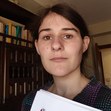If only he took his own advice
[{"id":404963029,"type":"0","order":0,"width":100,"height":55,"data":{"areaMargin":450,"contentWidthOriginalPx":749},"areas":[{"id":212377464,"order":0,"contents":[{"type":"title","data":[{"type":"src","value":"Alan Rusbridger: News And How to Use It - What to Believe in a Fake News World"},{"type":"align","value":"center"},{"type":"color","value":""},{"type":"backgroundcolor","value":""},{"type":"bold","value":"false"},{"type":"italic","value":"false"},{"type":"strike","value":"false"},{"type":"underline","value":"false"},{"type":"size","value":""},{"type":"font","value":""},{"type":"verticalalign","value":"middle"},{"type":"url","value":""}]}],"width":100,"height":100,"widthHeightRatioContent":1.9802,"widthHeightRatio":1.81818}]},{"id":285335584,"type":"0","order":1,"width":100,"height":55,"data":{"areaMargin":450,"contentWidthOriginalPx":749},"areas":[{"id":625837843,"order":0,"contents":[{"type":"body","data":[{"type":"src","value":"
Sounds good. However, applying this advice takes time, and Rusbridger himself doesn't seem to have enough leisure to follow his own rules. Take his lexicon entry about ECHO CHAMBERS, where he wants to reassure us that echo chambers and filter bubbles are overstated and, according to him, not a problem. He bases this opinion on a single study, this one. It was funded by Google, focuses on people's self-reported behaviour - not the most reliable data - and completely, admittedly ignores algorithms, when algorithms are the whole reason why Eli Pariser wrote his book The Filter Bubble. Going by Rusbridger's own criteria, his page about ECHO CHAMBERS is fake news.
The author builds his book like a lexicon with cross-references. The most frequent reference? see: CLIMATE CHANGE. From almost every other page Rusbridger wants to send us to his favourite topic, to which he dedicates the longest article in the book. It gets annoying. Worse, it gets boring. A deadly sin in journalism, by Rusbridger's own words.
Otherwise, the style and readablity varies. Most lexicon entries contain long paragraphs of quotes from other authors, so much that you almost can't make out Rusbridger's own voice. I didn't count the lines, but I'd estimate that around half of the book consists of direct quotes. The one thing our author writes all by himself is hit pieces.
Rusbridger takes every opportunity to attack his rivals in the publishing industry, especially if they dare to differ from his opinion on see: CLIMATE CHANGE or Brexit. He is quick to point out that they aren't scientists and shouldn't write about those topics. What is Rusbridger? Wikipedia says he studied English Literature. He shouldn't be writing about anything else than the metrics of a Shakespeare stanza, then.
Pick up News And How to Use It if you're prepared to read sceptically from page one and fact-check every article. You'll find good bits, you'll find amusing bits. You'll also find an appalling amount of name-calling, arrogance and hypocrisy. It's the best and the worst of printed news distilled into a book.
Yours sincerely
Christina Widmann
"},{"type":"html","value":"false"}]}],"width":100,"height":100,"widthHeightRatioContent":1.9802,"widthHeightRatio":1.81818}]},{"id":122868754,"type":"0","order":2,"width":52.54629629629629,"height":158.6850220264317,"data":{"areaMargin":450,"contentWidthOriginalPx":749},"areas":[{"id":2140770948,"order":0,"contents":[{"type":"media","data":[{"type":"width","value":"454"},{"type":"height","value":"700"},{"type":"videoSrc","value":""},{"type":"src","value":"https://nouwcdn.com/v205/u/347/133334..."
Published in 2020
ISBN: 978-1838851613
Get your copy on Amazon.
"},{"type":"html","value":"false"}]}],"width":100,"height":100,"widthHeightRatioContent":1.9802,"widthHeightRatio":1.81818}]}]
Dear Reader:
A sceptical reader is a good reader, it says on the bookmark that came with my copy of News And How to Use It. Except if you're sceptical about climate change or any other topic where Alan Rusbridger has an opinion. Yes, he writes that in the book. Openly and without a trace of shame he tells us to fact-check his rivals, but not himself or his brainchild the Guardian. Question his rivals and you're a brave sceptic, question him on the smallest detail and you're a denier.
Sounds good. However, applying this advice takes time, and Rusbridger himself doesn't seem to have enough leisure to follow his own rules. Take his lexicon entry about ECHO CHAMBERS, where he wants to reassure us that echo chambers and filter bubbles are overstated and, according to him, not a problem. He bases this opinion on a single study, this one. It was funded by Google, focuses on people's self-reported behaviour - not the most reliable data - and completely, admittedly ignores algorithms, when algorithms are the whole reason why Eli Pariser wrote his book The Filter Bubble. Going by Rusbridger's own criteria, his page about ECHO CHAMBERS is fake news.
The author builds his book like a lexicon with cross-references. The most frequent reference? see: CLIMATE CHANGE. From almost every other page Rusbridger wants to send us to his favourite topic, to which he dedicates the longest article in the book. It gets annoying. Worse, it gets boring. A deadly sin in journalism, by Rusbridger's own words.
Otherwise, the style and readablity varies. Most lexicon entries contain long paragraphs of quotes from other authors, so much that you almost can't make out Rusbridger's own voice. I didn't count the lines, but I'd estimate that around half of the book consists of direct quotes. The one thing our author writes all by himself is hit pieces.
Rusbridger takes every opportunity to attack his rivals in the publishing industry, especially if they dare to differ from his opinion on see: CLIMATE CHANGE or Brexit. He is quick to point out that they aren't scientists and shouldn't write about those topics. What is Rusbridger? Wikipedia says he studied English Literature. He shouldn't be writing about anything else than the metrics of a Shakespeare stanza, then.
Pick up News And How to Use It if you're prepared to read sceptically from page one and fact-check every article. You'll find good bits, you'll find amusing bits. You'll also find an appalling amount of name-calling, arrogance and hypocrisy. It's the best and the worst of printed news distilled into a book.
Yours sincerely
Christina Widmann
"},{"type":"html","value":"false"}]}],"width":100,"height":100,"widthHeightRatioContent":1.9802,"widthHeightRatio":1.81818}]},{"id":122868754,"type":"0","order":2,"width":52.54629629629629,"height":158.6850220264317,"data":{"areaMargin":450,"contentWidthOriginalPx":749},"areas":[{"id":2140770948,"order":0,"contents":[{"type":"media","data":[{"type":"width","value":"454"},{"type":"height","value":"700"},{"type":"videoSrc","value":""},{"type":"src","value":"https://nouwcdn.com/v205/u/347/133334..."
News And How to Use It: What to Believe in a Fake News World by Alan Rusbridger
Published in 2020
ISBN: 978-1838851613
Get your copy on Amazon.
"},{"type":"html","value":"false"}]}],"width":100,"height":100,"widthHeightRatioContent":1.9802,"widthHeightRatio":1.81818}]}]
Published on November 26, 2021 23:17
No comments have been added yet.



